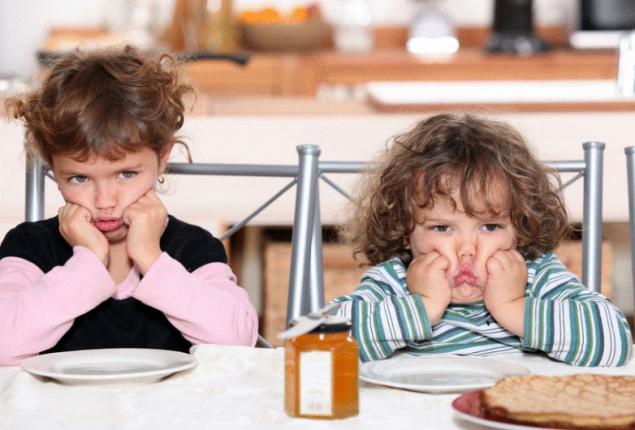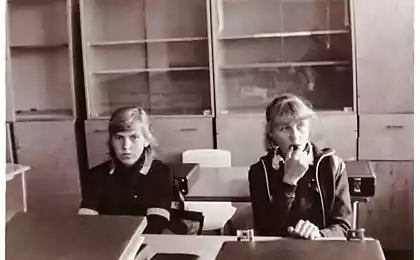137
Dennis Dragunsky: Victory Awaken for Nimmi
Recently I was at the Book Salon in St. Petersburg.
I'm going back to the Sapsana.
Unlucky with seats: instead of calmly looking at the back of the seat in front, I sit face to face with other passengers. In front of me is a grandmother and a grandson. A nice boy of about five and a slim, old woman.

Grandmother does not give his grandson a second of peace. Not in terms of jerking or commenting, oh no! In terms of providing services.
She always feeds him cookies, buns, peeled and sliced fruits, candy, chupa chups and something else.
Unwrapped in front of him board games, pulls out of the backpack typewriters and figures. He's always changing clothes. Takes off and puts on jackets, vests and sweaters. Then he takes off his sneakers, "to breathe his legs," then he puts his shoes on him so that he walks down the aisle. At the same time, the boy does not move either a leg or a pen. Grandma herself pulls everything on him and pulls it off, puts sneakers on him and laces them.
The computer's out. "What cartoon do you want to watch?" Long listing available. The boy takes a long time to choose. Then another, the third. Then my grandmother asks, "Can I hide my computer?" The boy barely nods. The grandmother immediately reports that she has ice cream in her refrigerator (obviously, a thermostat bag). "What do you want: green, lilac, white, chocolate or nuts?" - White. Grandma takes out ice cream, unwraps it herself, gives it to the boy. He eats. He eats, then he says, "With peanuts." Grandma pulls, unwraps, he eats again. "Do you want juice?" - I don't want to. - Want some water? Sweet, sour or clean? - Whatever. "Do you choose, choose what you want more?" "Clean." "With bubbles or without bubbles?" "Okay, bubbles."
During all this time, the boy never said anything like “please” or “may I take it.” He didn't even say the simple, cheeky, demanding childish "give!"
Everything was pushed to him in advance, immediately anticipating possible desires and giving him a choice between sweet and bubbles. Needless to say, he never said “thank you” or “how delicious.” But he constantly told his grandmother “don’t interfere!” and even “don’t interrupt!” One time he was quietly and very dissatisfied, and the grandmother in response fervently said: “But I have already asked for your forgiveness!” You've already forgiven me! Forgive me, right?
This is no accidental observation. My correspondent writes to me, “I watch this every day at work.” For me, this is not news, but sad routine.
The process of development of child worship and child-pleasing on the part of parents and the complete infantilization of children is gaining momentum with monstrous speed.
Only by the elementary skills of self-care can be judged: what children can physiologically do at three years, many hardly do at six or eight. And everything goes on increasing.
In St. Petersburg, during a meeting with readers, I was once again asked: “Did your childhood differ from that of our children?” What was better then, in the late fifties and sixties, and what was worse? ?
“Worse” and “better” will be decided in five minutes.
I'm talking about differences.
Yes, dear moms and dads of the 1980s, who had children in the early 2000s: our childhood was very different. We wrote not with ballpoint pens, but with feather pens, and not even with pens, but with “macal,” so to speak. The feather should have been dipped in a faience inkwell. We wore an uncomfortable and ugly school uniform made of gray soldier’s cloth, with a belt and cap, and the girls were dressed in modest “gymnasium” dresses.
We lived in communal apartments, the whole family in one room, and such rooms — six or eight, and one bathroom for all. And sometimes there was no bathroom, we went to the bath.
And of course, we didn't have any devices or gadgets. Television was not in every family. And the phone is one for the entire hallway. It's a little more than that. I'm not talking about outfits. A jacket and trousers (blouse and skirt) in addition to a school gymnast (a school brown dress with an apron) are all outfits.
I mean, they were poor. And boring: rarely when on TV "children's show", and even that can not watch: the grandmother is sick, asleep. One room. Well, you can also go to the movies for a children's session, at nine in the morning, on Sunday.
Bad, huh?
But we lived a hundred times freer than today’s children. Yeah, imagine, it's freer. Despite all the ideology, pioneering and scrap metal collection.
I often hear moms and dads say, “Oh, I’m picking up Masha/Misha from school, then taking her to music, then to the pool.” It seems strange to me, and to be honest, it’s just wildness. It seems crazy. We went everywhere ourselves. For example, I myself went to the Englishwoman (many stops on the trolleybus), and to the swimming pool “Moscow” (also near the edge), and to the sports section near VDNKh (metro, bus and on foot), and to the evening art school. And of course, no one took the child to school by car. And if this happened somewhere (see Frida Vigdorova’s novel My Class), it was a shock, a scandal, miracles in the grid.
But most importantly, we were always thrown out into the yard.
In fact, we did not sit at home, but if suddenly, having done lessons, we got stuck - immediately we heard mom or grandmother's voice: "Run in the yard, walk with the guys!" There were no cell phones. So we had the sacred right of a free person to go missing for two hours.
Although we were not pampered with pocket money, still some sums accumulated from time to time. And we went to the shops ourselves. For example, in the Pioneer store on Gorky Street, where various radio parts were sold. For bad was the boy who did not assemble, did not weld a simple transistor receiver himself to fit in a soapbox. I picked it up and he was catching something!
Or we went to the pet store in Kuznetsky, or even went to the Bird Market, for Taganka - many (including me) had aquariums with fish. But the point is not in diodes-triodes-capacitors and not in fish with the marvellous names “danio rerio” and “barbus sumatranus” – but in the fact that we have been moving around Moscow completely independently since ten years ago. Mostly on foot or by land transport: this is better than the subway, because you can ride a hare.
We've had money taken from us. Some big bully boys. "Give me twenty cents!" Giving is pathetic. Twenty cents after all! A large portion of ice cream, or four cakes. But most importantly, it is vile in the sense of honor. And in general, once you give - every time you go to this yard, they will take away from you. So, next time you will have to go bypass, bright and crowded street – and this is very humiliating. It's gross, I told you. So you had to fight back, when you fight back, when you say, "You know Lech French?" I'm with his brother at the same desk!
They had to gather their strong teams, guard their territory, stand up for the honor (and for the two-hryvnia) of their younger or weaker comrades.
In the yard and in the street, we built social muscles. Simply put, learning to live. Building relationships and tactics of behavior.
Be cautious or bold, direct or cunning. And besides, they learned to exist in a big city, with its trolleybuses and trams, intersections and traffic lights, avenues and gateways, shops and kiosks. Without yard companies and soldered teams, without skirmishes with small street robbers, without lost hryvnias and broken noses, but just without early experience walking on the street alone - socially disabled people grow up.
Undeveloped social skills will not emerge. Everything has to learn on time. The real Mowgli, that is, a child nurtured by wolves, will never be able to master human speech, even if you put a hundred speech therapists to it. Such cases are known, described in detail and explained. A child who was cared for too much as a child is "Mowgli the other way around." He will need care, protection, and parental guidance for the rest of his life.
It should not be said that taking a son or daughter to school and to the sports section by car, prohibiting walking around the city on their own is a concern for the safety of the child. It seems to me that the opposite is the desire to get rid of responsibility for it, because responsibility is always a risk. And cartoons and computer games are a refusal to fully communicate with the child. Parental selfishness under the guise of minute-to-minute care. It’s actually a minute-by-minute throwing your child away from you: “Get a look at the computer or the TV, just don’t touch your mom and dad!” Just don't stop us from staring at the TV or the computer ourselves.”
In this infantilization, in this consumerist selfishness, is the key to the future catastrophe of our barely sprouted middle class.
Because mom-dads, taking children in the car to school and to the pool, flooding their brains with cartoons and games, stifling their emotions with endless new gadgets and devices - this is our middle class, more or less educated, fairly wealthy people.
But the second generation of the middle class - those born in the early 2000s and caressed, bullied by parental care - may not survive as a class.
Other people will survive.
The proud part of the middle class with stupid arrogance calls them “bad” and “bad” as well as “churki” and “khach” – but victory in the coming great social competition will be theirs. Victory will not be for the capital and not for Europe, but for a poor suburb and for the southeast. Because their kids ran in the yard all day, fought and rode the tram with a hare. published
Author: Denis Dragunsky
P.S. And remember, just changing our consumption – together we change the world!
Source: www.gazeta.ru/comments/column/dragunsky/6742769.shtml
I'm going back to the Sapsana.
Unlucky with seats: instead of calmly looking at the back of the seat in front, I sit face to face with other passengers. In front of me is a grandmother and a grandson. A nice boy of about five and a slim, old woman.

Grandmother does not give his grandson a second of peace. Not in terms of jerking or commenting, oh no! In terms of providing services.
She always feeds him cookies, buns, peeled and sliced fruits, candy, chupa chups and something else.
Unwrapped in front of him board games, pulls out of the backpack typewriters and figures. He's always changing clothes. Takes off and puts on jackets, vests and sweaters. Then he takes off his sneakers, "to breathe his legs," then he puts his shoes on him so that he walks down the aisle. At the same time, the boy does not move either a leg or a pen. Grandma herself pulls everything on him and pulls it off, puts sneakers on him and laces them.
The computer's out. "What cartoon do you want to watch?" Long listing available. The boy takes a long time to choose. Then another, the third. Then my grandmother asks, "Can I hide my computer?" The boy barely nods. The grandmother immediately reports that she has ice cream in her refrigerator (obviously, a thermostat bag). "What do you want: green, lilac, white, chocolate or nuts?" - White. Grandma takes out ice cream, unwraps it herself, gives it to the boy. He eats. He eats, then he says, "With peanuts." Grandma pulls, unwraps, he eats again. "Do you want juice?" - I don't want to. - Want some water? Sweet, sour or clean? - Whatever. "Do you choose, choose what you want more?" "Clean." "With bubbles or without bubbles?" "Okay, bubbles."
During all this time, the boy never said anything like “please” or “may I take it.” He didn't even say the simple, cheeky, demanding childish "give!"
Everything was pushed to him in advance, immediately anticipating possible desires and giving him a choice between sweet and bubbles. Needless to say, he never said “thank you” or “how delicious.” But he constantly told his grandmother “don’t interfere!” and even “don’t interrupt!” One time he was quietly and very dissatisfied, and the grandmother in response fervently said: “But I have already asked for your forgiveness!” You've already forgiven me! Forgive me, right?
This is no accidental observation. My correspondent writes to me, “I watch this every day at work.” For me, this is not news, but sad routine.
The process of development of child worship and child-pleasing on the part of parents and the complete infantilization of children is gaining momentum with monstrous speed.
Only by the elementary skills of self-care can be judged: what children can physiologically do at three years, many hardly do at six or eight. And everything goes on increasing.
In St. Petersburg, during a meeting with readers, I was once again asked: “Did your childhood differ from that of our children?” What was better then, in the late fifties and sixties, and what was worse? ?
“Worse” and “better” will be decided in five minutes.
I'm talking about differences.
Yes, dear moms and dads of the 1980s, who had children in the early 2000s: our childhood was very different. We wrote not with ballpoint pens, but with feather pens, and not even with pens, but with “macal,” so to speak. The feather should have been dipped in a faience inkwell. We wore an uncomfortable and ugly school uniform made of gray soldier’s cloth, with a belt and cap, and the girls were dressed in modest “gymnasium” dresses.
We lived in communal apartments, the whole family in one room, and such rooms — six or eight, and one bathroom for all. And sometimes there was no bathroom, we went to the bath.
And of course, we didn't have any devices or gadgets. Television was not in every family. And the phone is one for the entire hallway. It's a little more than that. I'm not talking about outfits. A jacket and trousers (blouse and skirt) in addition to a school gymnast (a school brown dress with an apron) are all outfits.
I mean, they were poor. And boring: rarely when on TV "children's show", and even that can not watch: the grandmother is sick, asleep. One room. Well, you can also go to the movies for a children's session, at nine in the morning, on Sunday.
Bad, huh?
But we lived a hundred times freer than today’s children. Yeah, imagine, it's freer. Despite all the ideology, pioneering and scrap metal collection.
I often hear moms and dads say, “Oh, I’m picking up Masha/Misha from school, then taking her to music, then to the pool.” It seems strange to me, and to be honest, it’s just wildness. It seems crazy. We went everywhere ourselves. For example, I myself went to the Englishwoman (many stops on the trolleybus), and to the swimming pool “Moscow” (also near the edge), and to the sports section near VDNKh (metro, bus and on foot), and to the evening art school. And of course, no one took the child to school by car. And if this happened somewhere (see Frida Vigdorova’s novel My Class), it was a shock, a scandal, miracles in the grid.
But most importantly, we were always thrown out into the yard.
In fact, we did not sit at home, but if suddenly, having done lessons, we got stuck - immediately we heard mom or grandmother's voice: "Run in the yard, walk with the guys!" There were no cell phones. So we had the sacred right of a free person to go missing for two hours.
Although we were not pampered with pocket money, still some sums accumulated from time to time. And we went to the shops ourselves. For example, in the Pioneer store on Gorky Street, where various radio parts were sold. For bad was the boy who did not assemble, did not weld a simple transistor receiver himself to fit in a soapbox. I picked it up and he was catching something!
Or we went to the pet store in Kuznetsky, or even went to the Bird Market, for Taganka - many (including me) had aquariums with fish. But the point is not in diodes-triodes-capacitors and not in fish with the marvellous names “danio rerio” and “barbus sumatranus” – but in the fact that we have been moving around Moscow completely independently since ten years ago. Mostly on foot or by land transport: this is better than the subway, because you can ride a hare.
We've had money taken from us. Some big bully boys. "Give me twenty cents!" Giving is pathetic. Twenty cents after all! A large portion of ice cream, or four cakes. But most importantly, it is vile in the sense of honor. And in general, once you give - every time you go to this yard, they will take away from you. So, next time you will have to go bypass, bright and crowded street – and this is very humiliating. It's gross, I told you. So you had to fight back, when you fight back, when you say, "You know Lech French?" I'm with his brother at the same desk!
They had to gather their strong teams, guard their territory, stand up for the honor (and for the two-hryvnia) of their younger or weaker comrades.
In the yard and in the street, we built social muscles. Simply put, learning to live. Building relationships and tactics of behavior.
Be cautious or bold, direct or cunning. And besides, they learned to exist in a big city, with its trolleybuses and trams, intersections and traffic lights, avenues and gateways, shops and kiosks. Without yard companies and soldered teams, without skirmishes with small street robbers, without lost hryvnias and broken noses, but just without early experience walking on the street alone - socially disabled people grow up.
Undeveloped social skills will not emerge. Everything has to learn on time. The real Mowgli, that is, a child nurtured by wolves, will never be able to master human speech, even if you put a hundred speech therapists to it. Such cases are known, described in detail and explained. A child who was cared for too much as a child is "Mowgli the other way around." He will need care, protection, and parental guidance for the rest of his life.
It should not be said that taking a son or daughter to school and to the sports section by car, prohibiting walking around the city on their own is a concern for the safety of the child. It seems to me that the opposite is the desire to get rid of responsibility for it, because responsibility is always a risk. And cartoons and computer games are a refusal to fully communicate with the child. Parental selfishness under the guise of minute-to-minute care. It’s actually a minute-by-minute throwing your child away from you: “Get a look at the computer or the TV, just don’t touch your mom and dad!” Just don't stop us from staring at the TV or the computer ourselves.”
In this infantilization, in this consumerist selfishness, is the key to the future catastrophe of our barely sprouted middle class.
Because mom-dads, taking children in the car to school and to the pool, flooding their brains with cartoons and games, stifling their emotions with endless new gadgets and devices - this is our middle class, more or less educated, fairly wealthy people.
But the second generation of the middle class - those born in the early 2000s and caressed, bullied by parental care - may not survive as a class.
Other people will survive.
The proud part of the middle class with stupid arrogance calls them “bad” and “bad” as well as “churki” and “khach” – but victory in the coming great social competition will be theirs. Victory will not be for the capital and not for Europe, but for a poor suburb and for the southeast. Because their kids ran in the yard all day, fought and rode the tram with a hare. published
Author: Denis Dragunsky
P.S. And remember, just changing our consumption – together we change the world!
Source: www.gazeta.ru/comments/column/dragunsky/6742769.shtml






















